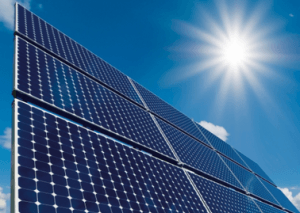Developing countries overtake the developed in renewable energy investment
 For the first time in 2015, developing countries overtook developed countries in renewable energy investments, according to the Renewable Energy Policy Network for the 21st Century (REN 21) based in France.
For the first time in 2015, developing countries overtook developed countries in renewable energy investments, according to the Renewable Energy Policy Network for the 21st Century (REN 21) based in France.
As 147 gigawatts of renewable energy was added to global energy supply in 2015, new investments in renewable power and fuels, reached a record $286 billion, of which developed countries accounted for $130 billion and developing countries, $156 billion, REN 21’s 2016 status report on renewables found.
REN 21 says the figure could be higher if hydropower solutions greater than 50 megawatts are considered.
Solar power saw the highest investments in 2015, adding 50 gigawatts and growing in investments by $81 billion in developed countries and $80 billion in developing countries, reflecting a growth of 12 per cent.
Up from 52 gigawatts in 2014, 63 gigawatts of wind power was added as wind power grew by 4 per cent – $42 billion in developed countries and $67 billion in developing countries.
The number of countries with targets and policies to feed in renewable energy also increased significantly, bringing the total number of countries with renewable energy targets to 173 and those with support policies to 146.
“Although the pace of new adoption of net metering policies had slowed in recent years, this trend reversed in 2015, with four new policies announced at the national level and five added at the state/provincial level,” the report said, citing Ghana as one of the countries that adopted net metering and net billing.
Net metering is a technology that allows households to feed energy into the national grid through renewable sources such as rooftop solar energy.
The Energy Commission said recently, it is currently piloting 35 net metering systems with homes in Accra.
At the close of 2015, REN 21 said renewables accounted for 8.1 million jobs and constituted 23.7 per cent of the global energy mix. Hydropower accounted for 16.6 per cent of renewables in 2015, while 3.7 per cent was wind, 2 per cent bio-power, and 1.2 per cent solar energy.
The Renewable Energy Policy Network for the 21st Century said while trends are generally positive, several challenges need to be addressed if governments are to achieve a global transition away from fossil fuels.
Governments must increase the share of renewables into grids, increase the use of renewables for household heating and cooling, and address policy and political instability, regulatory barriers, and fiscal constraints.
By Emmanuel Odonkor
Copyright © 2016 by Creative Imaginations Publicity
All rights reserved. This article or any portion thereof may not be reproduced or used in any manner whatsoever without the express written permission of the publisher except for the use of brief quotations in reviews.
